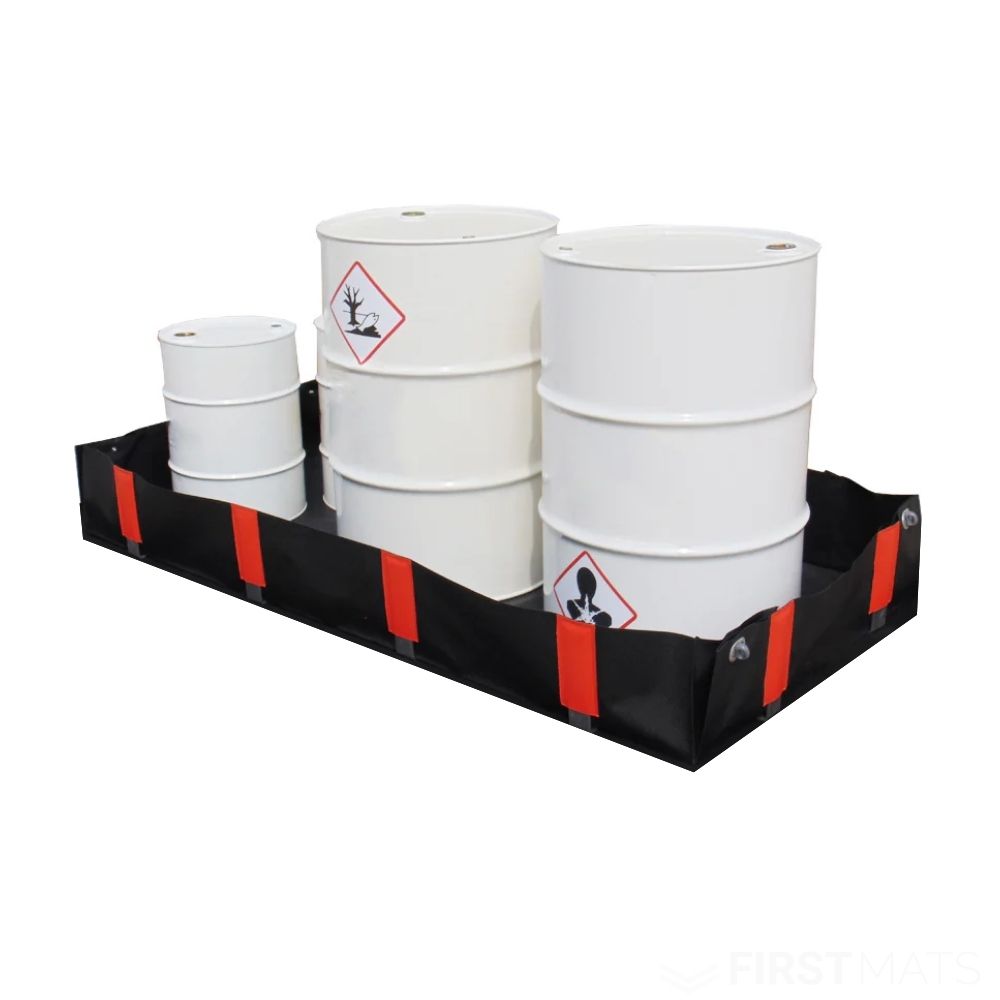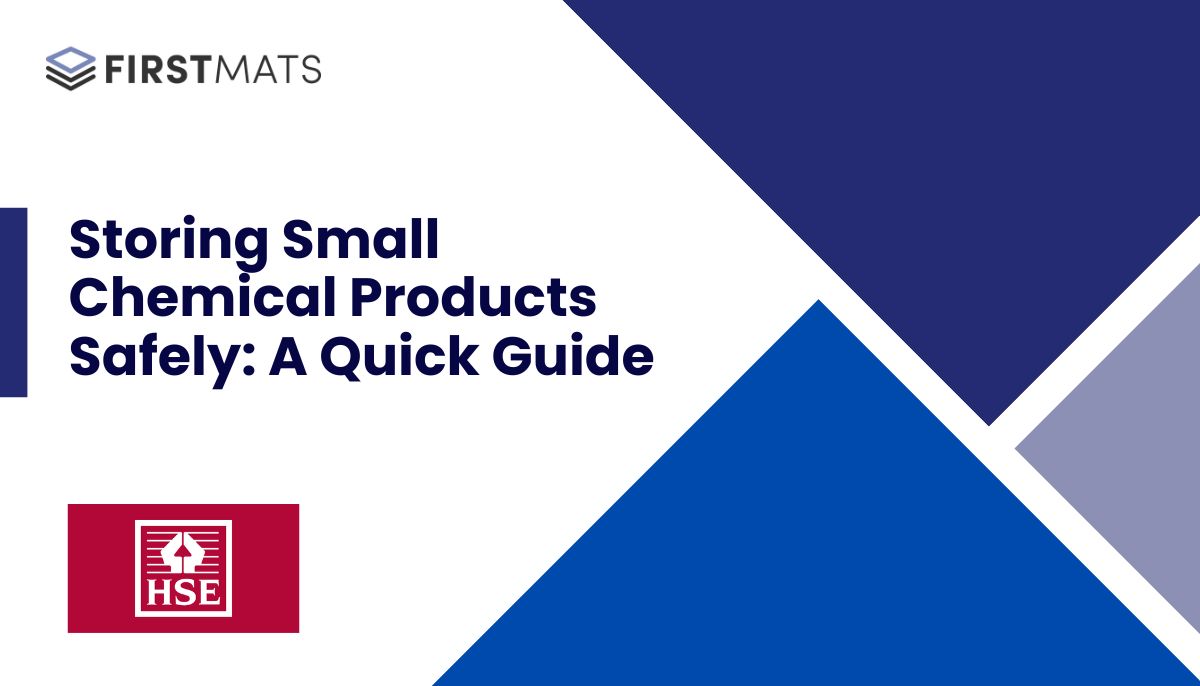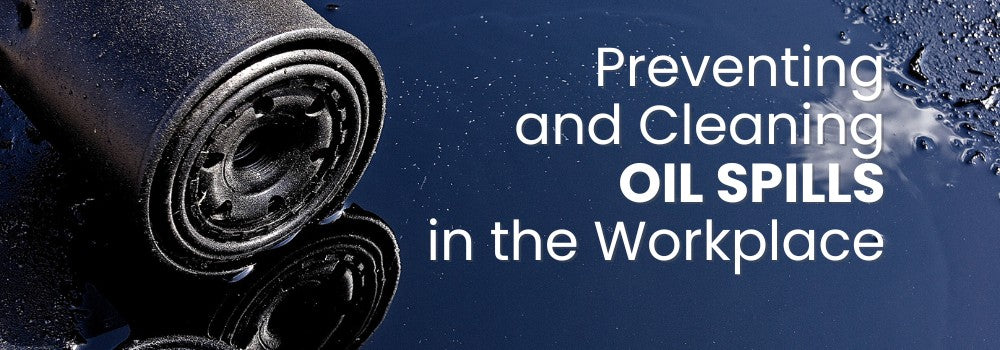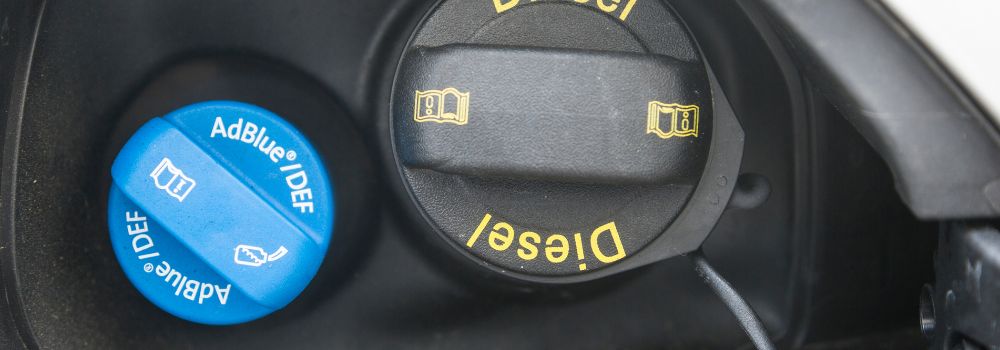AdBlue: Its Risks to Health and the Environment

by Richard O'Connor
Aug 04, 2023 | *4 minutes to readIn an era where environmental responsibility and sustainable practices take centre stage, understanding the various components of these efforts is paramount. One such component, extensively used in the automotive industry, is AdBlue. While it significantly reduces harmful emissions, there are crucial factors to consider about its use, specifically its effects on health and the environment. In this comprehensive exploration, we'll delve into the intricacies of AdBlue, demystify its uses, discuss its potential hazards, and elaborate on effective spill containment practices, referring to UK legislation and insights from industry expert Richard O'Connor, Technical Director at First Mats.
What is AdBlue, and What is it Used For?
AdBlue is a solution comprised of high-purity, synthetically produced urea (32.5%) dissolved in deionised water (67.5%). This non-toxic, colourless, odourless liquid is used extensively in the automotive industry, specifically within diesel-powered vehicles. As part of the Selective Catalytic Reduction (SCR) system, AdBlue helps reduce harmful nitrogen oxide (NOx) emissions, which significantly contribute to air pollution.

Richard O'Connor, Technical Director at First Mats, explains, "AdBlue is instrumental in our fight against air pollution. When injected into the exhaust system, it breaks down dangerous NOx emissions into harmless nitrogen and water, drastically reducing the environmental footprint of diesel vehicles."
The widespread use of AdBlue across the UK and Europe aligns with the European emission standards, including Euro 6, which mandate stringent limits on exhaust emissions.
Are AdBlue Spillages Hazardous to Humans?
While AdBlue is not classified as a hazardous substance for transport or health under the Classification, Labelling and Packaging (CLP) Regulation in the UK, it is not completely devoid of risks. If in contact with the skin or eyes, AdBlue can cause irritation. Ingesting it is harmful and can lead to serious health complications.
"Although AdBlue is generally safe, accidents can occur. It's crucial to avoid direct contact, and immediate medical attention is required in case of accidental exposure," says Richard O'Connor. Employers are also obligated under the Control of Substances Hazardous to Health (COSHH) Regulations 2002 to ensure appropriate safety measures are in place to protect workers from harmful exposure.
Can AdBlue Spills Harm The Environment?
Despite its role in reducing air pollution, AdBlue spills can have negative environmental impacts. Due to its high ammonia content, AdBlue is classified as an environmental hazard under some regulation guidelines.
An AdBlue spill can lead to eutrophication, where water bodies receive excess nutrients, leading to dense plant growth and, subsequently, the death of marine life due to oxygen depletion. Therefore, it's imperative that spills are prevented and, if they occur, properly managed to mitigate environmental harm.
How to Contain AdBlue Spills
Accidental AdBlue spills should be addressed immediately using suitable containment and clean-up procedures. The best practice involves having a spill response plan in place, which should align with the UK's Control of Pollution (Oil Storage) (England) Regulations 2001.
Richard O'Connor emphasises using specialised equipment, such as AdBlue spill kits, to contain and clean up spills effectively. "AdBlue spill kits are designed specifically for the job. They usually contain absorbent socks, pads, disposable bags and gloves. Having these kits on-site can make a significant difference in minimising the environmental impact of a spill."
While AdBlue is critical in reducing harmful emissions from diesel vehicles, it's important to handle it responsibly. Understanding its potential health and environmental impacts and having the appropriate response strategies in place, such as AdBlue spill kits, can make all the difference.
Conclusion
The key to sustainable growth is balance. AdBlue, while a boon in our endeavour to curb harmful emissions from diesel engines, is not without its potential risks. Understanding that every component of our environmental solutions requires responsible usage and handling is crucial.
By adhering to regulations, being informed about potential hazards, and being prepared with effective spill containment solutions like AdBlue spill kits, we can strive towards a future of cleaner transportation, healthier living, and sustained environmental well-being. As we continue to evolve our practices and technologies, we must ensure that our progress is not just technologically advanced but also safe and responsible for humans and our environment.
Explore More Topics
Frequently Asked Questions
If you have any questions, we’re here to help
How long does delivery take?
Each product comes with a specified lead time for delivery. We'll keep you informed if there are any delays in meeting this timeline.
Typically, once you’ve finalised your order and approved the proof, it will take 4-5 business days to make and deliver your finished mat.
If my order is damaged, can I return or exchange it?
Got a problem with your order? If something's not right or you're not thrilled with the quality, just let us know within 14 days of getting it. Drop us a line, and we'll tell you what to do next—usually, it starts with you sending us a photo of the issue. Once we check that out, we'll sort you out with a refund or a new item, no fuss.
Can I get my mat delivered more quickly?
Need your item in a hurry? Just Contact us to explore the faster delivery options we might have for you!
If my custom mat is damaged, can I return or exchange it?
Got a problem with your order? If something's not right or you're not thrilled with the quality, just let us know within 14 days of getting it. Drop us a line, and we'll tell you what to do next—usually, it starts with you sending us a photo of the issue. Once we check that out, we'll sort you out with a refund or a new item, no fuss.





















































